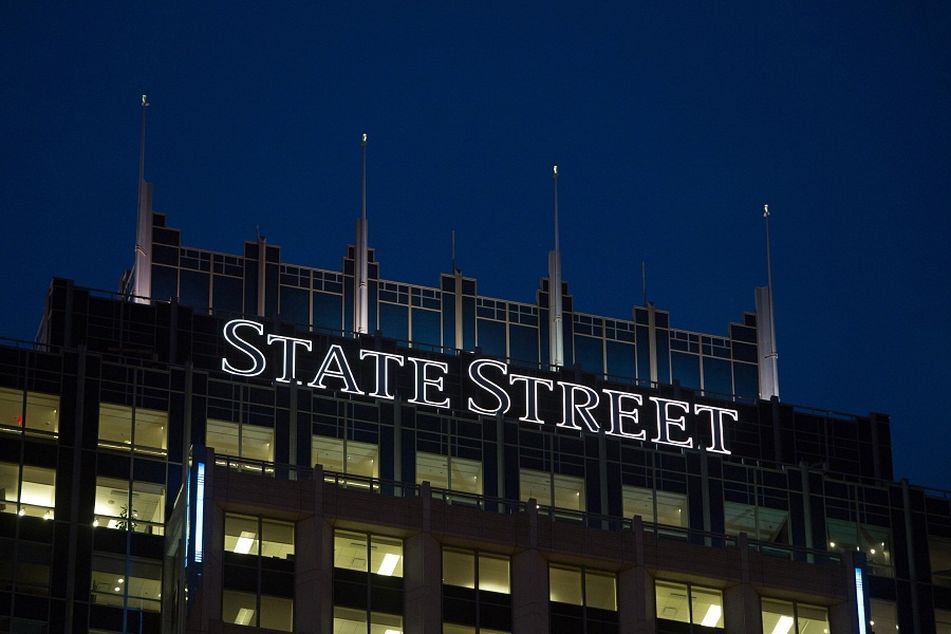State Street cuts fees on $78bn of ETFs in its core line

The firm reduced fees by as much as half on its low-cost Portfolio ETFs, which are for buy-and-hold investors.
State Street Global Advisors chopped fees Tuesday on nearly half the ETFs in its Portfolio line of products, citing new costs that are below similar funds from Vanguard, BlackRock and Charles Schwab.
The fee reductions apply to 10 SPDR exchange-traded funds that represent a total of more than $78 billion in assets. With the cuts, investors can use the ETFs to build diversified portfolios that have total expense ratios under 10 basis points.
However, the reductions apply to already low-cost products; in some cases, the new fees are just a basis point lower.
“There’s been an ongoing race to bring fees down across the board within the ETF industry for years. And especially with more advisors building asset-allocation strategies using low-cost index ETFs as the building blocks,” said Todd Rosenbluth, head of research at VettaFi. “Fees matter to those investors that are coming into the ETF market, and expense ratio is one of the easiest things to search for.”
The reduction on the SPDR Portfolio S&P 500 ETF put new fees at 2 bps, compared to the prior level of 3 bps.
“For most investors, that’s not as important,” Rosenbluth said. “If you were in a 3-bp S&P 500 ETF yesterday with your clients, you’re unlikely to make any changes to your portfolio as a result of the move.”
Within the core ETFs business, which includes State Street’s Portfolio line, the company is considerably smaller than the likes of Vanguard and BlackRock’s iShares in terms of assets, Rosenbluth noted. Such products have ultra-low fees as selling points and are focused on buy-and-hold investors.
“In the last two years, State Street Global Advisors has reduced expense ratios on 20 ETFs across our U.S. line up, demonstrating our commitment to the democratization of investing by delivering institutional-quality investment solutions at competitive price points,” Sue Thompson, head of SPDR Americas distribution, said in the firm’s announcement.
Although some of the fee cuts are only a basis point, others are more significant. For example, the expense ratio on the SPDR Portfolio Emerging Markets ETF went from 11 bps down to 7 bps, and the SPDR Portfolio High Yield Bond ETF saw a drop from 10 bps to 5 bps.
“Seven basis points is extremely cheap for any ETF,” Rosenbluth said.
In marketing materials for the Portfolio series, State Street compares the ETFs’ costs to those of competitors. Some of them track the same index, but that is not always the case — meaning that comparisons are not apples to apples, Rosenbluth said.
So while the SPDR ETFs are less expensive, they might not produce the same returns, for better or worse.
“Costs matter, but exposure matters more toward advisor and end-client returns,” Rosenbluth said.
State Street Portfolio ETF fee cuts
| Ticker | ETF | Previous expense ratio | New expense ratio | ETF assets as of July 31 ($B) |
| SPLG | SPDR Portfolio S&P 500 ETF | 3 | 2 | 19.9 |
| SPMD | SPDR Portfolio S&P 400 Mid Cap ETF | 5 | 3 | 7.1 |
| SPSM | SPDR Portfolio S&P 600 Small Cap ETF | 5 | 3 | 8.5 |
| SPDW | SPDR Portfolio Developed World ex-US ETF | 4 | 3 | 16.9 |
| SPEU | SPDR Portfolio Europe ETF | 9 | 7 | 0.5 |
| SPEM | SPDR Portfolio Emerging Markets ETF | 11 | 7 | 7.7 |
| SPTS | SPDR Portfolio Short Term Treasury ETF | 6 | 3 | 5.3 |
| SPTI | SPDR Portfolio Intermediate Term Treasury ETF | 6 | 3 | 3.9 |
| SPTL | SPDR Portfolio Long Term Treasury ETF | 6 | 3 | 7 |
| SPHY | SPDR Portfolio High Yield Bond ETF | 10 | 5 | 1.4 |
Time to switch utilities on and big-cap tech off in waning bull market
Learn more about reprints and licensing for this article.








